True Crit
Weekly film reviews. by Howard Feinstein
-
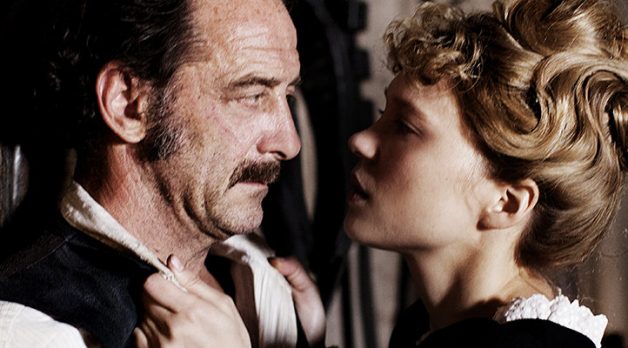 Les Affaires: Benoît Jacquot’s Diary of a Chambermaid
Les Affaires: Benoît Jacquot’s Diary of a Chambermaid
How to adapt a French epistolary novel relayed by a luscious servant from her point of view — itself a subversive proposition when it came out in 1900 — about the relationships she develops in assorted stately homes with both arrogant employers and beaten-down peers? To further complicate the project, how to insert into the mix a substantially larger contemporaneous issue: the shameful blemish on the national psyche that was the rabidly anti-Semitic Dreyfus affair? In the fourth movie version of libertarian author Octave Mirbeau’s groundbreaking Diary of a Chambermaid, director/co-screenwriter Benoît Jacquot has come up with some close-to-flawless strategies. The… Read more
-
 Friend or Foe: Maggie’s Plan
Friend or Foe: Maggie’s Plan
Until filmmaker, novelist, and funnywoman Rebecca Miller weighed in with the invigorating Maggie’s Plan, the history of films addressing the impasse between order and randomness — in theological terms, the conflict between free will and determinism — has rested on the mature products of profound Western European minds. Bresson’s Au Hasard, Balthasar and Dreyer’s Gertrud, for example, are stark, minimalist, and melancholic, with a divine presence at the very least implied. In Miller’s movie, intellectual musings are negligible in the fate debate. Destiny, whether embraced or resisted, is built into something more palpable: the actions of her quirky characters. Her earlier… Read more
-
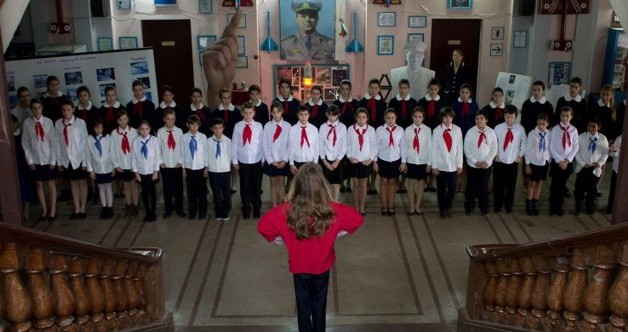 Unbuttoned: Maya Vitkova’s Viktoria
Unbuttoned: Maya Vitkova’s Viktoria
There is little navel-gazing in writer/director/co-producer Maya Vitkova’s Viktoria, in spite of the film’s specific focus and autobiographical elements. In fact, there is no navel at all on its principal protagonist, the young Viktoria (Daria Vitkova as a small child, Kalina Vitkova as a preteen and teenager, both nieces of the filmmaker). She is born in Bulgaria in 1979 without bellybutton or umbilical cord. Her birth falls on the anniversary of the Socialist Revolution, a pretext for the politically motivated anointment of the “Baby of the Decade” and adulation by the general population, at least until their system buckles. “We… Read more
-
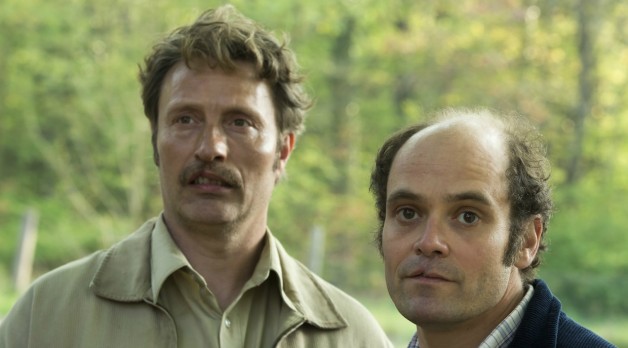 Through a Glass Darkly: Men & Chicken
Through a Glass Darkly: Men & Chicken
I really wanted to be a Jew, and then I found out that I was really a Nazi, because my family is German. And that also gave me some pleasure. So, I, what can I say? I understand Hitler….How do I get out of this sentence? Okay, I am a Nazi. As for the art, I’m for (Nazi architect Albert) Speer. This is a mild example of the comments reported from the 2011 Cannes Film Festival by Jada Yuan in a May 18 Vulture article entitled “The 10 Most Controversial Things Lars Von Trier said at the Melancholia Press Conference.” After an… Read more
-
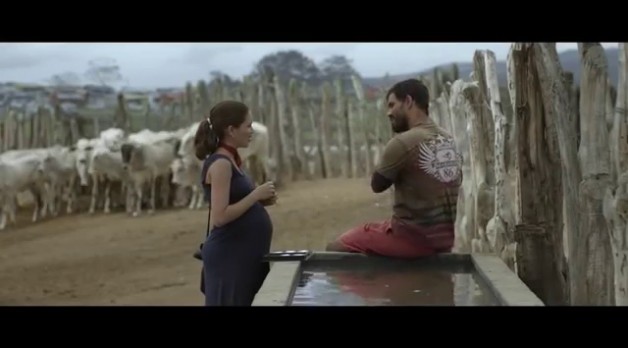 Spotlight: Gabriel Mascaro’s Neon Bull
Spotlight: Gabriel Mascaro’s Neon Bull
“Sand that tail!” Iremar (rising star Juliano Cazare), a musky, melancholy young vaquero, or bull handler, is shouting at Ze (Carlos Pessoa), his flabby, more light-spirited compadre on the service crew at a vaquejada, a specialized rodeo popular in relatively impoverished northeastern Brazil. The crowd, comprised of local rural peasants whose taste and practice have evolved little beyond the age-old ways, gets all worked up watching two horsemen attempt to bring down by the tail an ornery animal bucking in a state only a little more frenzied than the one fans have entered. The game may be simple, but to… Read more
-
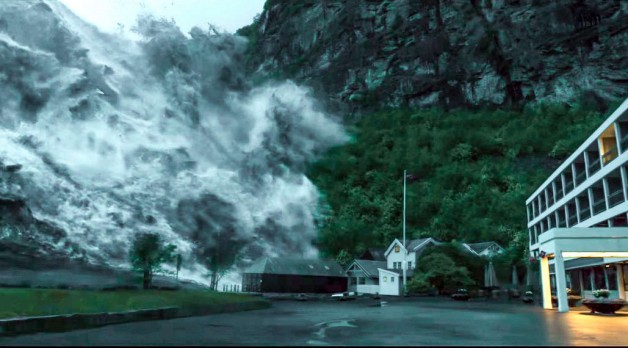 Breaking: The Wave
Breaking: The Wave
You can’t always get what you want But if you try sometimes you might find You get what you need — The Rolling Stones “Once these mountains grab a hold of you, they never let you go.” In Roar Uthaug’s The Wave, enervated chief Arvid Ovrebo (Fridtjov Saheim) waxes nostalgic to his handful of underlings, geologist watchdogs who command a state-of-the-art control center in western Norway that monitors the magnificent but unpredictable and ever-shifting mountains around them. It is situated high enough to withstand the brutal tsunamis that a sudden break-up can precipitate and that leave extensive damage to people and… Read more
-
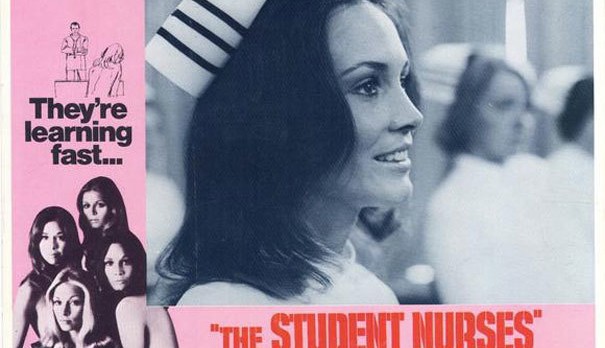 Sex Ed: Stephanie Rothman’s The Student Nurses
Sex Ed: Stephanie Rothman’s The Student Nurses
During a moment of high drama in the very special cult item The Student Nurses, which runs in a restored version at the new Metrograph in New York’s Lower East Side for one week beginning March 11, a pretty young woman rudely dumps her frustrated doctor boyfriend in plain sight of the sexy roommates she trains with at a large LA hospital. On his way out, just before wishing a corny “Peace!” to the other vixens, who are seated side by side on the living room couch, he keeps the scene from wandering into the expected emotional terrain by lamenting to… Read more
-
 Flesh and Blood: A War
Flesh and Blood: A War
Written and directed by Tobias Lindholm (A Hijacking), A War — one of the five nominees for Best Foreign Language Film — examines the divide between the military and domestic spheres in the life of Claus Pedersen (Lindholm regular Pilou Asbaek). He is unit leader of a small Danish NATO contingent in Afghanistan; his wife, Maria (Tuva Novotny), tries her best to hold down the home front, a battleground of another sort in which their three young children are non-lethal combatants. The separation of these domains becomes more and more clouded; the occasional satellite phone call is about all that… Read more
-
 Prime Time: Jacob Gentry’s Synchronicity
Prime Time: Jacob Gentry’s Synchronicity
Among Synchronicity director Jacob Gentry’s formidable gifts is a sharpened sensitivity to context, background, and setting that frees him to put in his characters’ mouths dialogue that might seem in the hands of less attuned writer/filmmakers overblown, at best chuckle-worthy in its impropriety. After all, even before being forged into a balanced partnership, these variables are already so complex. Consider the following line from the film as if it were a stand-alone: “Time is a great teacher that eventually kills all its students.” It does express a truism, but it also sounds, and reads, pretentious. One of several correctives would… Read more
-
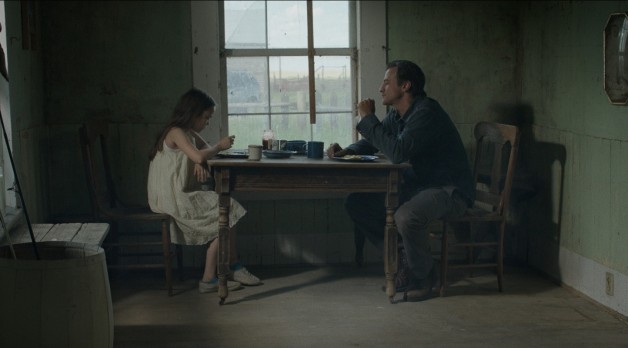 Dancer in the Dark: Ross Partridge’s Gutsy Lamb
Dancer in the Dark: Ross Partridge’s Gutsy Lamb
A minor blip on a warm Chicago afternoon. No one seems to notice that an 11-year-old waif, Tommie (a precocious Oona Laurence) is grabbed and pushed into a car by a stranger, the 47-year-old David Lamb (director Ross Partridge). Her pals — two seventh-grader girlfriends from school standing beside her — don’t even bother to report the feigned abduction, which is David’s twisted provocation after they dared the diminutive, eager-to-please child, decked out in attention-grabbing stiletto heels, to bum a cigarette from this complete stranger. Unperturbed, Tommie willingly accepts David’s offer of a road trip to rural Wyoming for nearly… Read more
